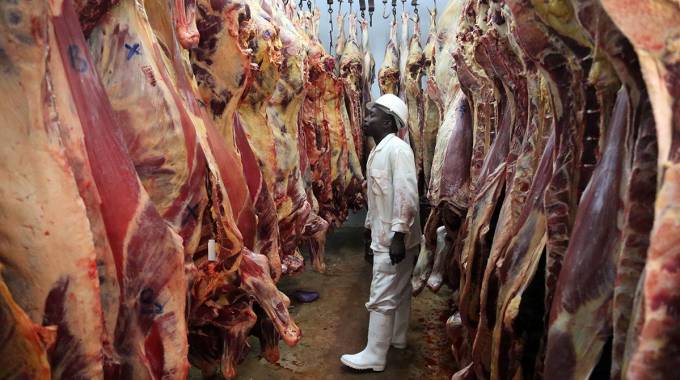
The Sunday Mail

Prince Mushawevato
BINDER Abattoir, located in the heart of Goromonzi’s resettlement area, is providing a lifeline for the local community.
The abattoir is supported by indigenous farmers specializing in cattle ranching.
While the country has grown accustomed to carnivorous middlemen who have broken the backs of many farmers, the abattoir is on a mission to transform the sector’s fortune.
Their operation is meant to ensure that surrounding farmers recoup maximum benefits from their animal husbandry activities.
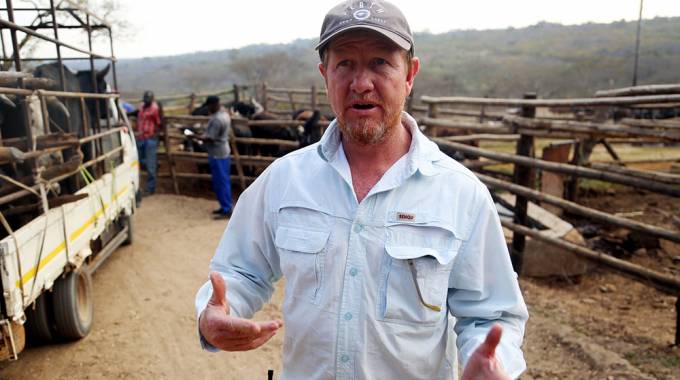
Binder Abattoir Operations Director Jamie Nel speaks to The Sunday Mail recently
“We are a middle player whose chief role is to link farmers and create a lucrative market to enable producers to derive maximum benefit from their animals,” revealed operations director Jamie Nel.
“Our business model enables a win-win partnership between us and the markets. We provide a market link between the actual producers of the beasts, the butcheries and individual buyers. They can retain the carcasses and sell them elsewhere,” he said.
Through the abattoir, farmers have access to slaughtering services, storage, refrigeration and a selling point for their beasts.
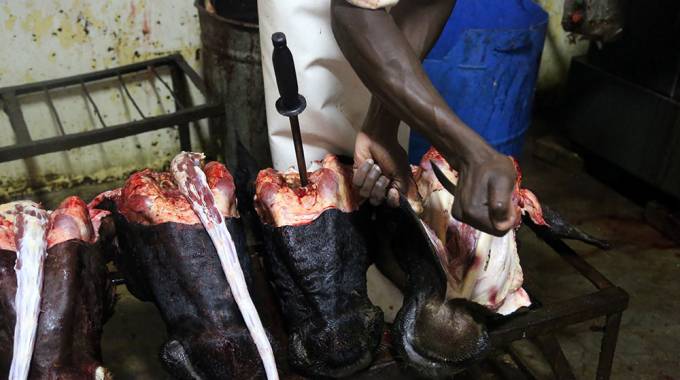
“We don’t middle market the product or add a mark-up. We only charge a small slaughtering fee and keep the hide as payment for our services,” added Nel.
The abattoir, which has been in operation since the late 1980s, slaughters an average of 45 beasts per day.
However, in July they recorded one of their busiest months ever after slaughtering over 1 300 beasts.
The venture has created business and employment opportunities for hundreds of people in the Mashonaland East province.
“I don’t own and have never owned cattle but over the past six years, I have become a reputable supplier of beef to restaurants and butcheries in Harare. I now have a decent house and have taken my kids to school through trading in meat,” said a middle aged lady who only identified herself as Mai Panashe.
Play video below:
Another long serving meat dealer, Mandi Goronhi, spoke glowingly about the Goromonzi abattoir.
“I buy and sell cattle. I started this business in 2006 when I was still at university. I operate from Chivhu and have a perfect working relationship with my clients and the abattoir.
“I have worked with other abattoirs before but it wasn’t working. Through them (Binder Abattoir), I’ve graduated from buying and selling to being a producer,” said Goronhi.
Apart from the meat business, villagers also collect horns and sell them to button manufacturers.
Others collect manure for use in agriculture activities.
Players in the transport business also get a slice of the cake.
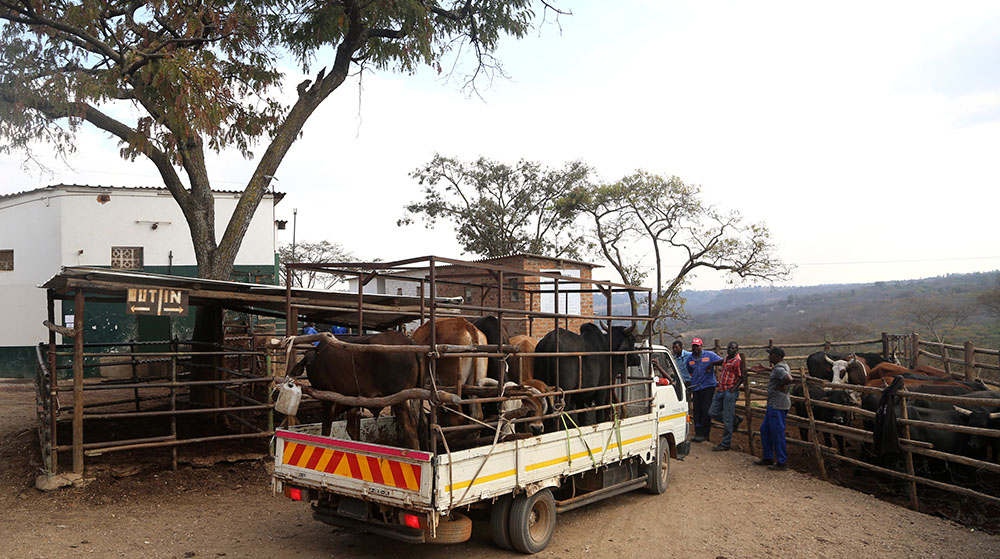
The abattoir which has been in operation since the late 80s, slaughters an average of 45 beasts daily
The cattle are transported to the abattoir by “small scale transporters”. Their charges per beast range between $180 and $200. The transporters can transport up to 30 beasts per load.
Apart from slaughtering, the abattoir also runs a 90-day to one year feeding programme, which is aimed at improving the weight and quality of meat. At the moment, they have more than 600 cattle on the scheme.
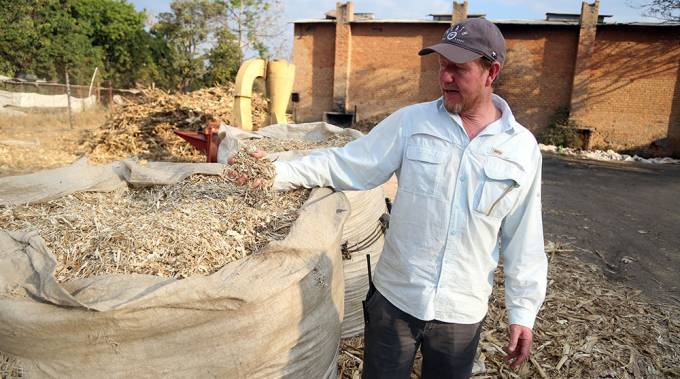
Small and large scale farmers in surrounding areas also make extra cash by selling their stover to the abattoir, which is an ingredient for making their own stock feed.
In the past, Binder Abattoir has partnered with Government on a national livestock feeding scheme. Hundreds of communal farmers benefited from the programme. At least 45 bulls were used for cross-breeding.
A supervisor at the abattoir, Sam Chingara, has been at the organisation for over two decades.
“I stay on the farm and have been working here for the past 20 years. Most of us have taken our kids to school, including university, through this business,” revealed Chingara.
“However, the power situation is seriously threatening the viability of the business.”
During power cuts, the abattoir runs on a generator.
To curb the spread of livestock diseases, the abattoir works closely with the livestock and veterinary services department.
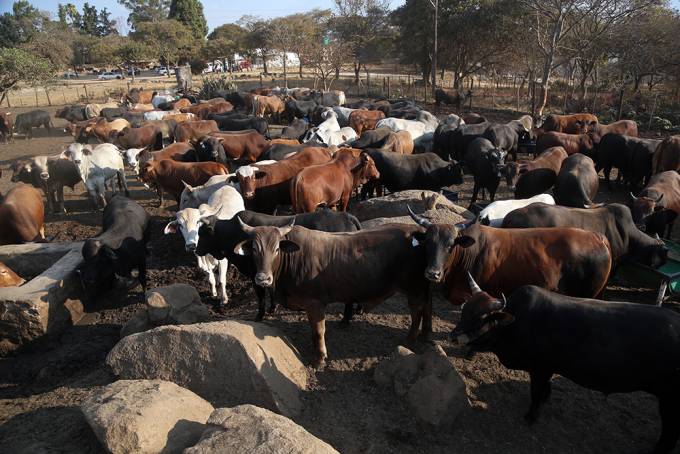
Binder Abattoir is located in the heart of the resettlement area of Goromonzi and presently has more than 600 cattle for the pen fattening scheme.
Their cattle comes from Murehwa, Mutoko, Macheke, Chivhu, etcetera.
“We require police and veterinary clearances so that we don’t deal with stolen or disease-ridden cattle,” highlighted the operations manager.
A state-of-the-art meat matrix machine captures the full data of the cattle, including the name of the owner and grading.
The system makes use of barcodes as labels of identification such that carcases never get mixed up.
“We are against receiving female breedable animals. If they make it through the nets, we try to purchase them and place the animals in our breeding herd,” said Nel.



